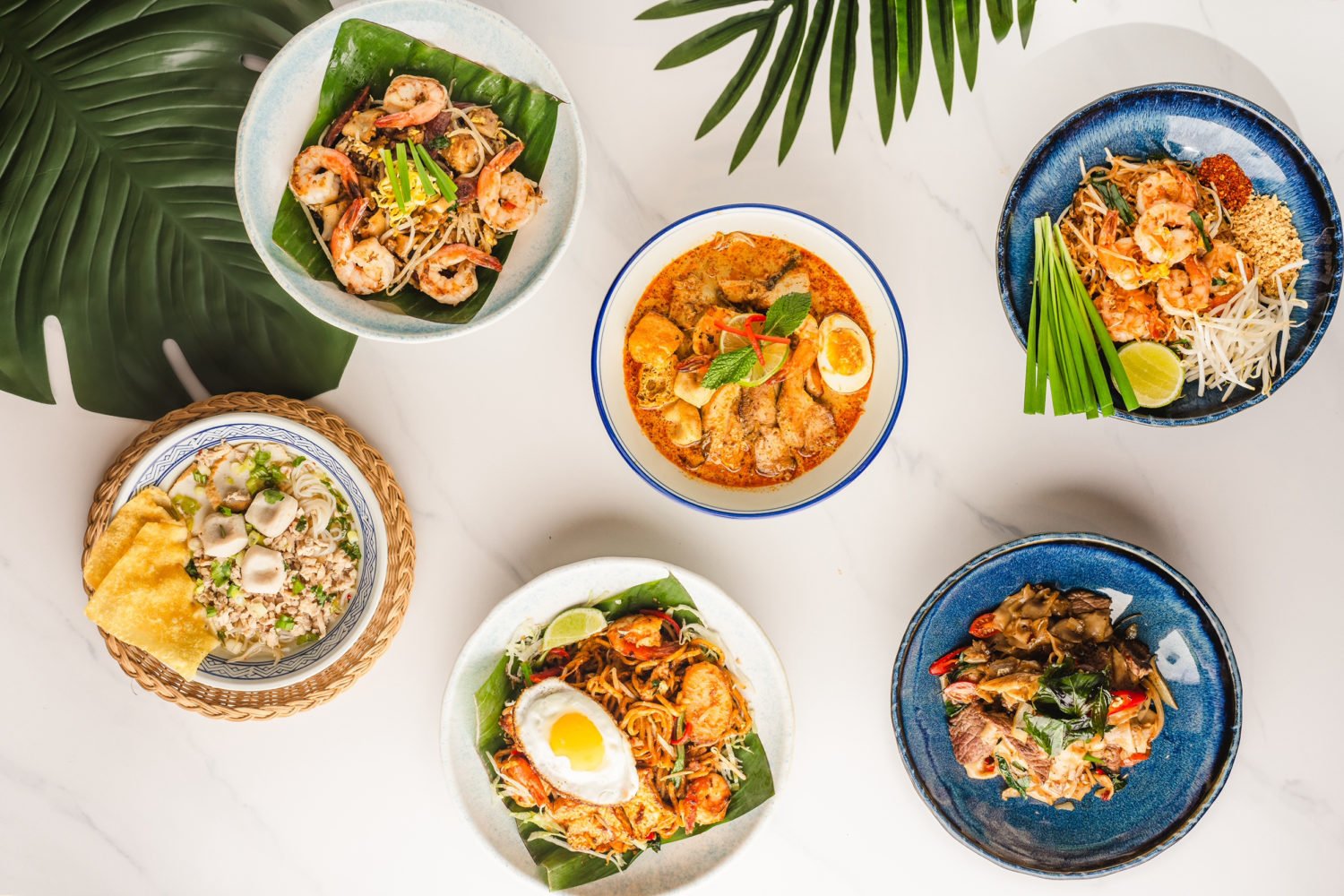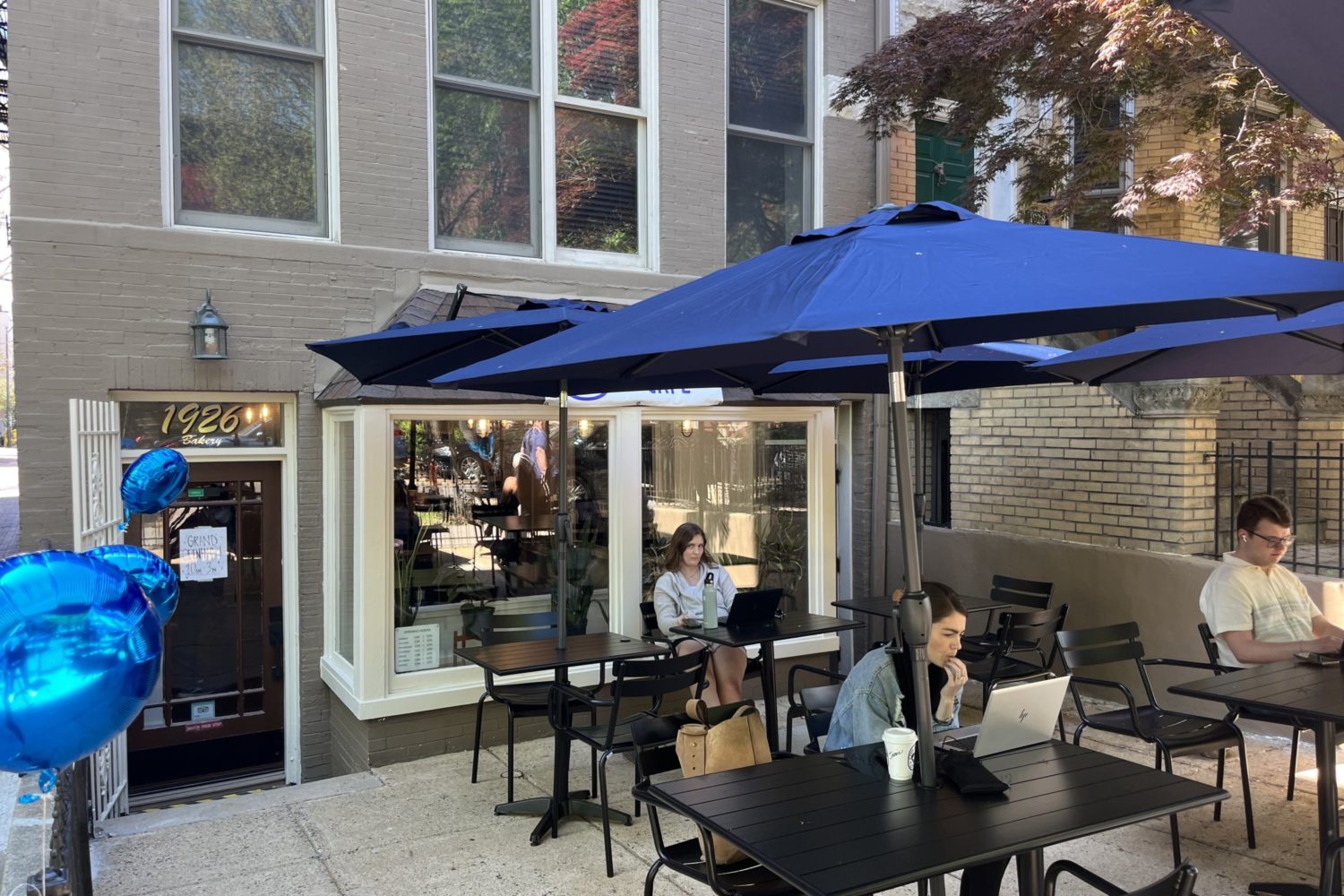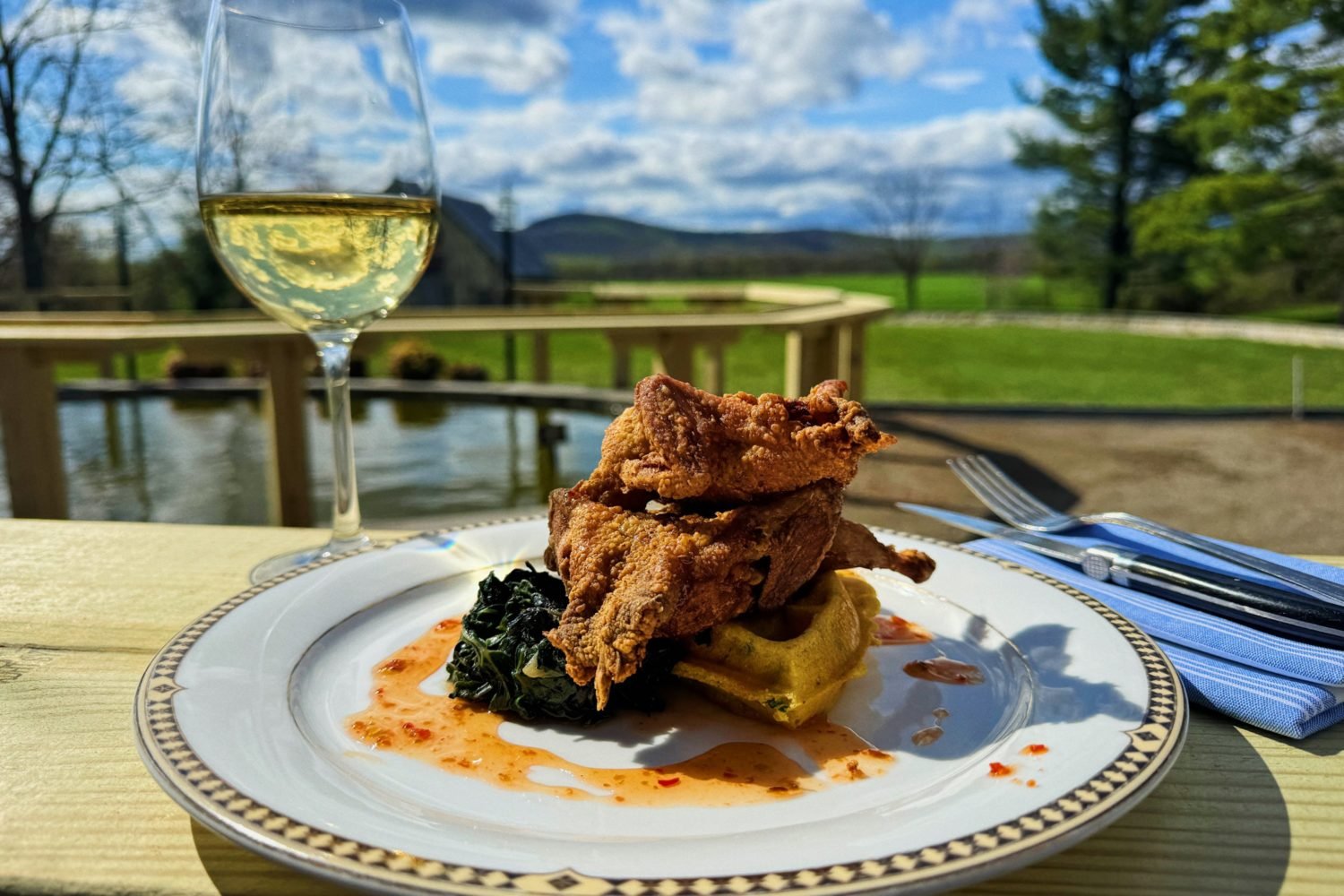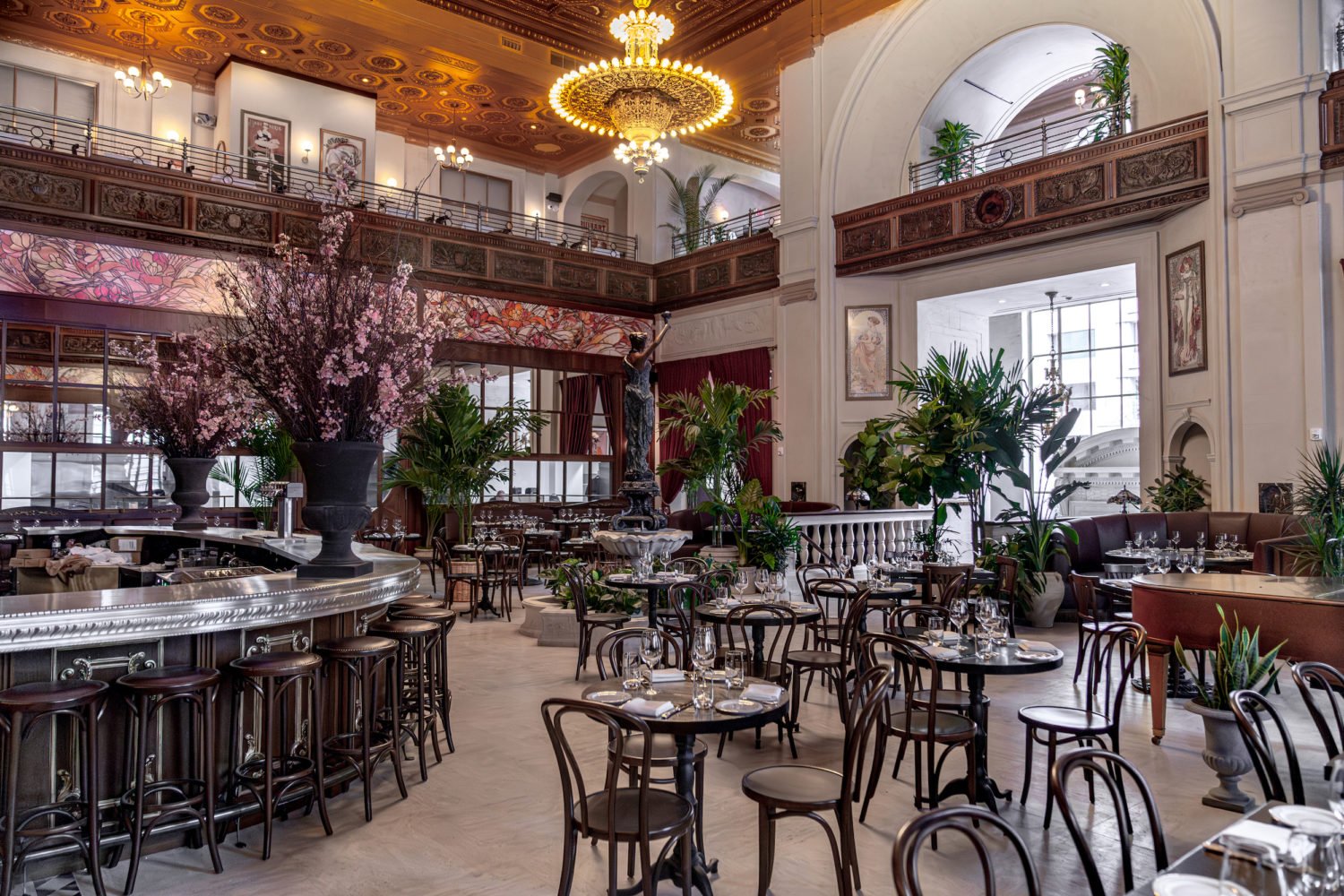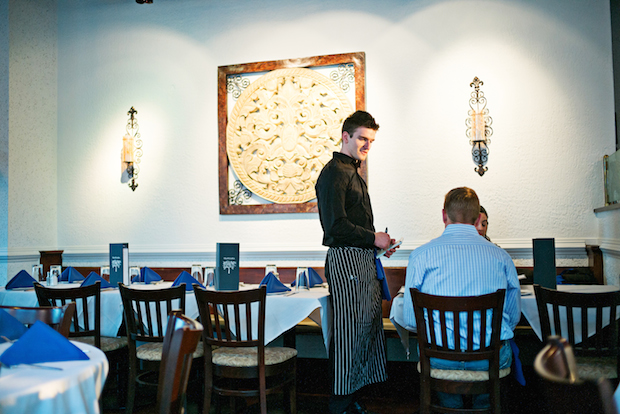About Trapezaria
Restaurateurs may tell you they’re in the hospitality business, but deep down they all know their job is to deliver something even more ineffable than a grand night out: an experience. In an age that privileges the quest for the authentic but disdains the appearance of effort, that often means evoking a highly specific place and time. Stephen Starr lavished a fortune in excess of a small country’s GNP on fixtures and floorboards to achieve the look of careless care at DC’s Le Diplomate. For restaurateurs who like to spike the punch of trendy, upscale dining with a strong shot of Eastern exoticism (Mark Kuller, Jeff Tunks), the first order of business after inking a deal is a trip abroad to gather plates, mats, cutlery, sometimes even recipes—all in search of an elusive whatsit that will give their 2,000 square feet the illusion of the actual.
And then there’s Trapezaria, which creates its entrancements the old-fashioned way: with an unforced charm, generous portions of simple cooking, and an obliviousness to culinary fad.
Drop by on a Friday or Saturday night and the absence of trendiness is as bracing as a double shot of ouzo. With a hearty welcome, the crisp-suited floor manager, Christos Vellios, ushers you toward your table as if this were a posh tropical resort, not a bargain-minded restaurant just off traffic-choked Rockville Pike. The iPod Shuffle may be the preferred mode of sound at most new restaurants, but owners Stavros Koudellou and Foto Martinos like their music live—hence the bouzouki player and the keyboardist camped out in a corner of the room. Their breezy melodies conjure a charming nighttime stroll along the crowded, cobblestone streets of Athens.
Looking around, it’s hard not to feel you’ve crashed a wedding reception—such a convivial mix of young families, couples on dates, and multiple generations of various clans all gathered around a circular table, laughing, drinking, munching.
Trapezaria is not a family restaurant, but the servers seem as if they, too, have been passed down through the generations, endearing themselves to diners with warmth and confidence and, sometimes, a gruff lovability. Overhearing my interest in a particular preparation of lamb, an intense, dark-eyed waitress told me to forget it and order that night’s lamb special instead.
“Really?” I said. “That much better?”
“Listen to me,” she said. “Listen.”
Who could reject an offer like that? Who’d want to? The half-inch-thick slices of tender leg and shoulder meat came drenched in an appealing gravy punched up with a generous squeeze of lemon and were joined by garlic roasted potatoes and a mound of green beans that, in the Greek fashion, looked overcooked but were perfect, with just enough chew, and seasoned with an aromatic, stew-like mix of tomatoes, onion, and mint. All you could see of the plate was the rim.
This pile-it-on quality isn’t unusual in Greek restaurants, and if Trapezaria were not much more than a place of generosity and abundance, it would hardly be noteworthy, like the dozens of tasty Greek diners scattered across the region. But while that lamb plate is as rib-sticking as it should be and the grilled pork sausages known as sheftalies are as smoky, juicy, and rich as the burnt ends of good country barbecue, many of these plates are lighter than you’d guess. The Cyprus-trained chef, Kyriakos Photiou, is a 40-year veteran of some of the area’s most notable Greek restaurants, and he understands how to reach for refinement without sacrificing rusticity.
His moussaka is several fathoms above the dense, gooey lasagna that inferior versions might lead you to expect—you can even taste the eggplant. Bakaliaros skordalia is a Greek twist on fish and chips and a virtuosic display of how to fry fish. The battered filets of cod are so light you’d swear they had never touched oil. The idea is to treat the skordalia mounded in the center as a kind of condiment and to swipe the filets through the whip of potatoes, garlic, and olive oil. But the crunchy sweet fish hardly needs it.
The skordalia is also available in a trio of dips—including a flat, pasty hummus—that the staff may try to talk you into if they hear you mulling the possibility of one of them. The best, by far, is the fava purée, bright and bursting with the simple, unvarnished flavor of mashed beans, garlic, lemon, and good olive oil.
If vegetarians aren’t made uneasy by the strapping platters of meats being ferried throughout the room all night, they ought to revel over their options. There are stuffed grape leaves made without the beef, and the subtraction is hardly a loss—the leaves have a nice, vegetal bite to them. Imam bayildi, a Turkish dish, is an appetizer here, but the preparation of tender, roasted eggplant, doused in sweet, garlicky tomato sauce and subtly perfumed with cinnamon, is enormous.
You likely won’t have room for dessert, but don’t let a pesky little thing like too little stomach space dissuade you from indulging in at least one. Galaktobouriko, a marvelous juxtaposition of warm, creamy semolina custard and crunchy phyllo, is presented in discrete squares, like bites of fudge. The Greek yogurt arrives in a martini glass, a scoop so white and dense it puts you in mind of cream cheese, only much tangier, drizzled with a very floral honey and garnished with toasted walnuts; a few small spoonfuls are immensely satisfying. If you can have only one sweet, go with the baklava, and ask for it warm. It’s so rich, nutty, sticky, and crunchy you’d swear pecan pie originated with the Greeks.
The waiter who’d recommended it, a clean-cut and eager college student from Cyprus, came by to make sure we were enjoying the pastry and then, seeing how quickly we’d devoured it, swung by a second time to tell us how much he loved it and how much it reminded him of home and how our enjoyment was his enjoyment.
Baklava is not a dish of memory for me, but at that moment it hardly mattered, because Trapezaria had collapsed that distance and made me feel nostalgic for something I’d never experienced.
This article appears in the May 2014 issue of Washingtonian.

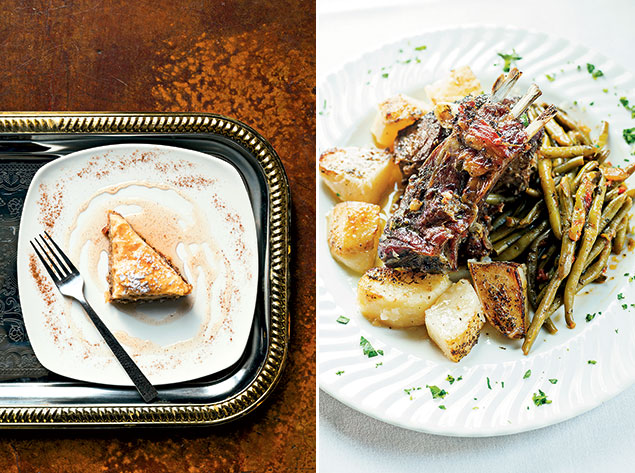
 100 Very Best 2015
100 Very Best 2015




